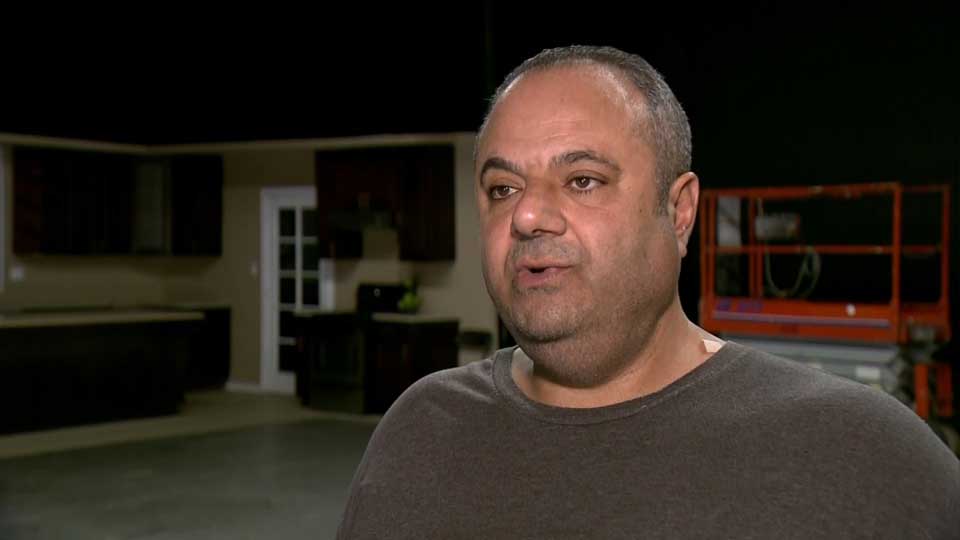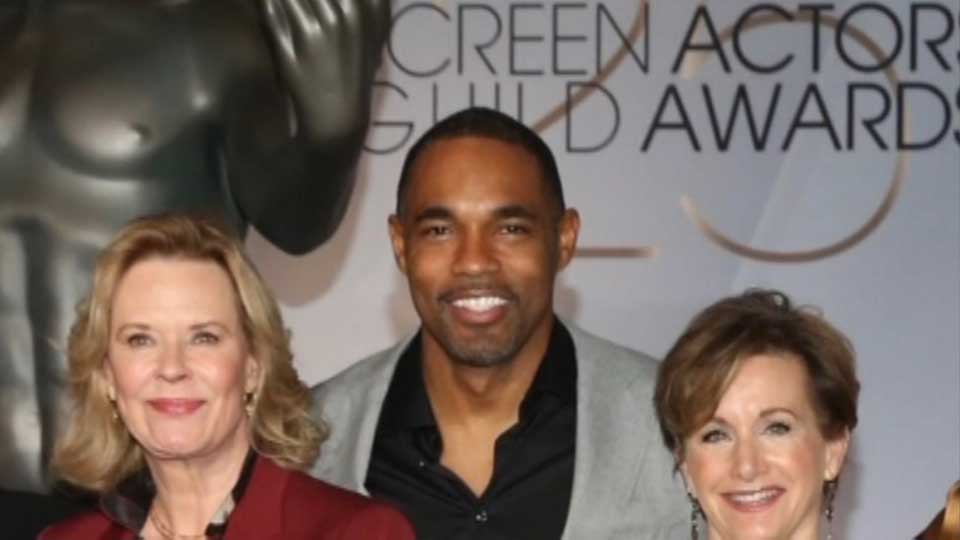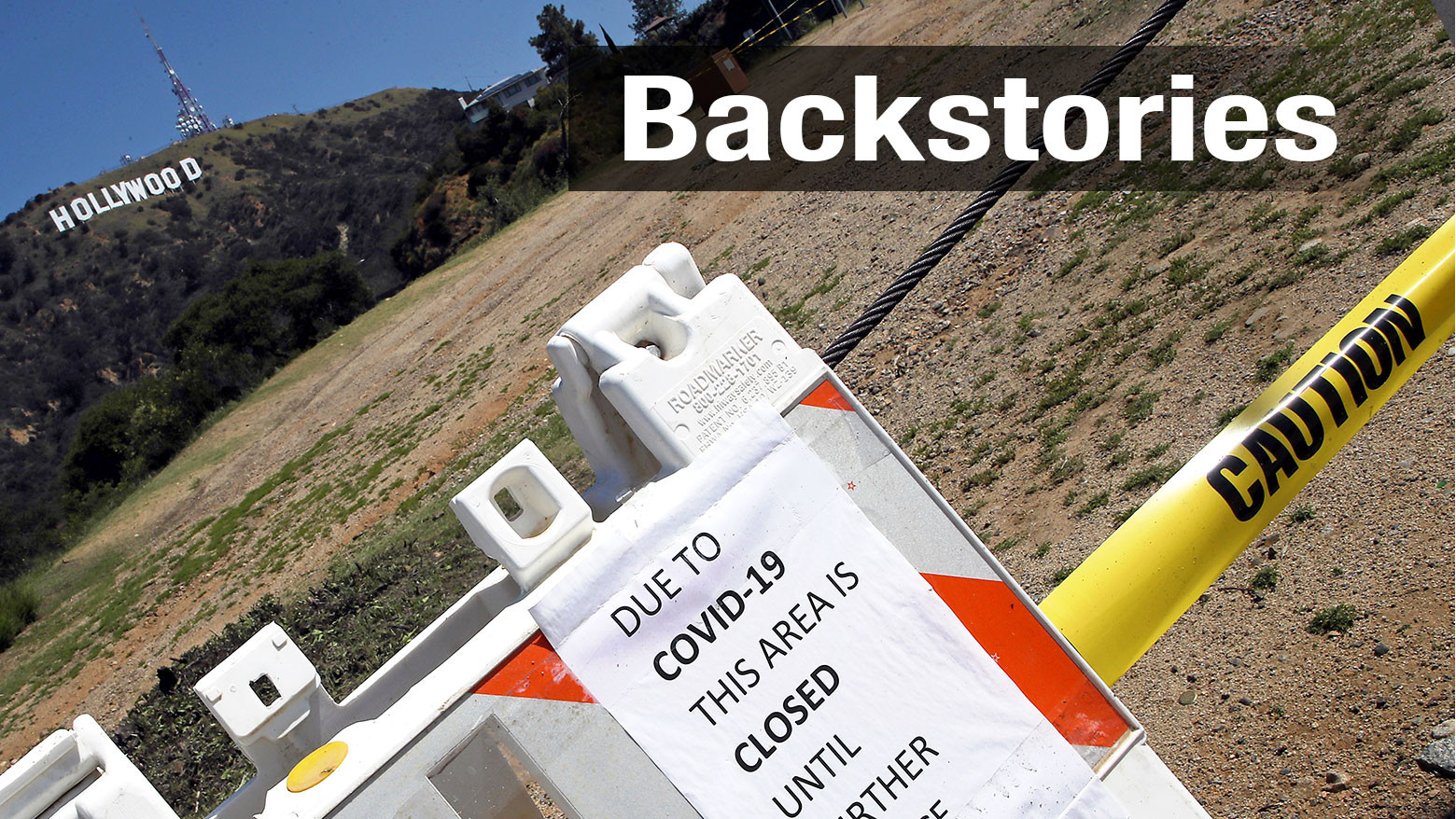The announcement of a shelter-in-place order for Los Angeles on March 19 brought the entertainment industry to a screeching halt. At Anthony’s studio, Affordable Sound Stages, a major television network left a model city half built on one of the stages, its scaled-down skyscrapers unpainted and awaiting the day it’s safe to continue work.
Madeline Berg, a journalist with Forbes who writes about the entertainment industry, says the industry is looking at a $12 billion loss in ticket revenue if the shutdowns continue through June. That number includes lost revenue from stage productions, movie theaters and concerts—but doesn’t take into account lost revenue from businesses like Anthony’s, so the real number could be billions higher.
While streaming services and in-home concert apps like Stageit could compensate for some of the losses, Berg says the hit to the industry is likely to be massive.

And though the words "entertainment industry" may call to mind multimillionaire celebrities, the business puts food on the table for a huge number of people who may not weather the storm so easily.
Jason George, star of television dramas Grey’s Anatomy and Station 19, says he got lucky. Station 19 had just finished filming the last episode of the season before the shutdown was announced. He’ll receive full payment for his work on the season and isn’t looking at a financial emergency.
But George, who is on the board of actors union SAG-AFTRA, says many actors and others in the industry aren’t so fortunate.
His stand-in recently suffered a medical issue that put him in the hospital for months, and has a weakened immune system leaving him vulnerable to the virus. Now the lack of work is compounding his problems.
"We actors get our health insurance by working," says George. "If you don't earn enough in a year to get your health insurance, then you weren't working enough as an actor and you don't get health insurance through the actors union."
SAG-AFTRA is seeking solutions to make sure all 160,000 of its members can keep their health insurance, but it’s a balancing act to make sure the health insurance plan doesn’t run out of money. "The ripples of this whole thing through my industry from the individual to the institutional level is insane," he says.
Journalist Berg says production companies are making up at least some of their lost revenue by releasing films directly to streaming instead of the theaters, but for lesser-known actors and actresses, the situation is dire.
"We think of actors making a ton of money, being really rich," she says. "A lot of actors are struggling, they're in a few productions a year and they really are contractors, you only make money during those periods when you're in a film or in a TV show or in a play. So unfortunately, there's not much that can be done."
The CARES Act, the government’s $2 trillion Coronavirus bailout package, provides around $100 million in funding for arts organizations like the National Endowment for the Arts. But it remains to be seen whether that money will make its way to the entertainment industry.
"A lot of artists were a little unhappy that the government, instead of dispersing the money set aside for the arts and allowing the decision to be made more locally, they gave it to these big heritage organizations," says Berg. "We don't know how they're going to dole out that money."

Despite the hardships to the industry, Jason George supports the lockdown as a necessary public health measure.
"I absolutely think the shelter-in-place is a difficult but necessary decision that our government had to make," he says. "This disease, if we don't solve that problem first, it'll drag us down and then our economy will never come back."
Vic Anthony says he too believes the lockdown is necessary, though he hopes it is over soon.
"We're all kind of sad we're not working. But hopefully things will pick up. Everybody will get on their feet again and we'll work again."

